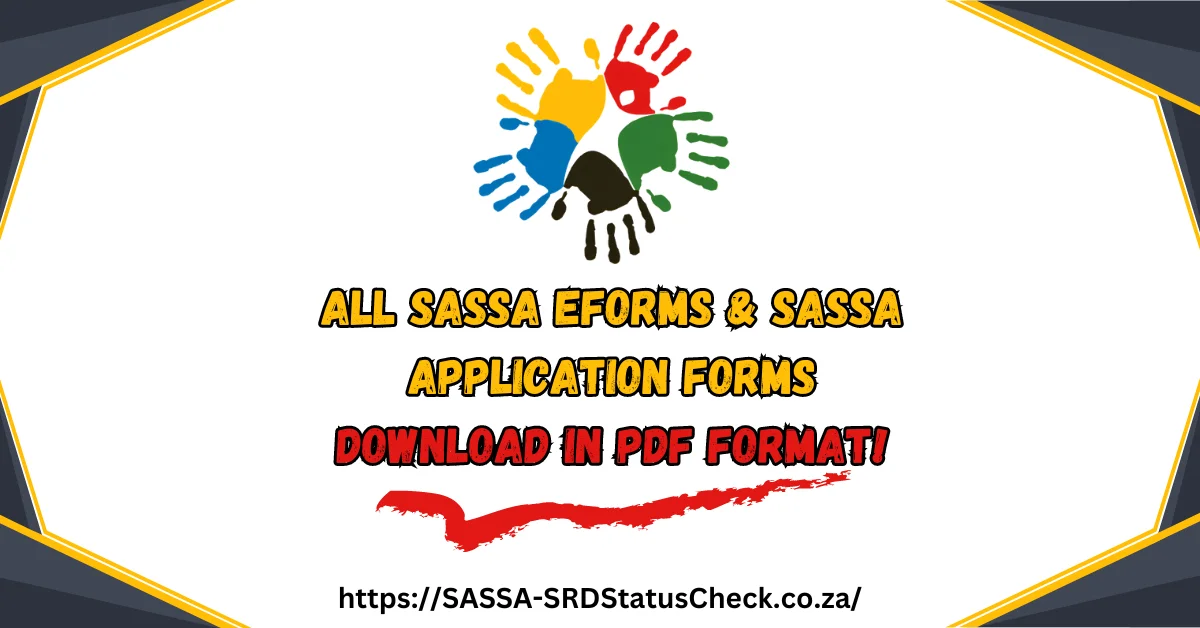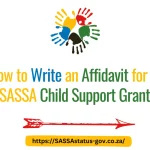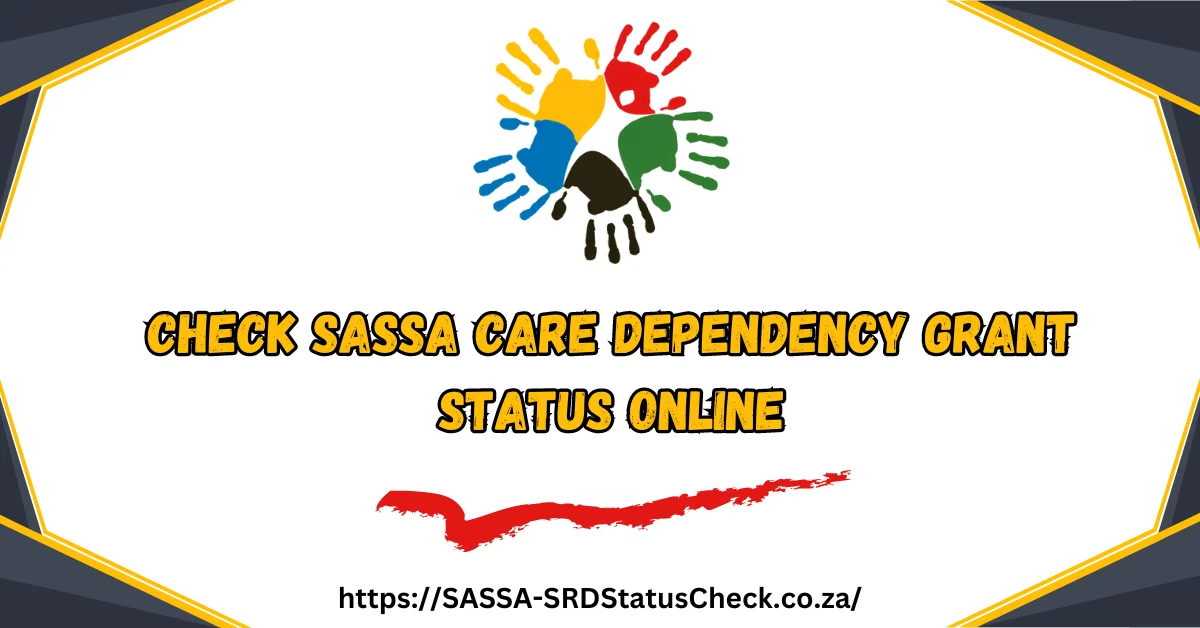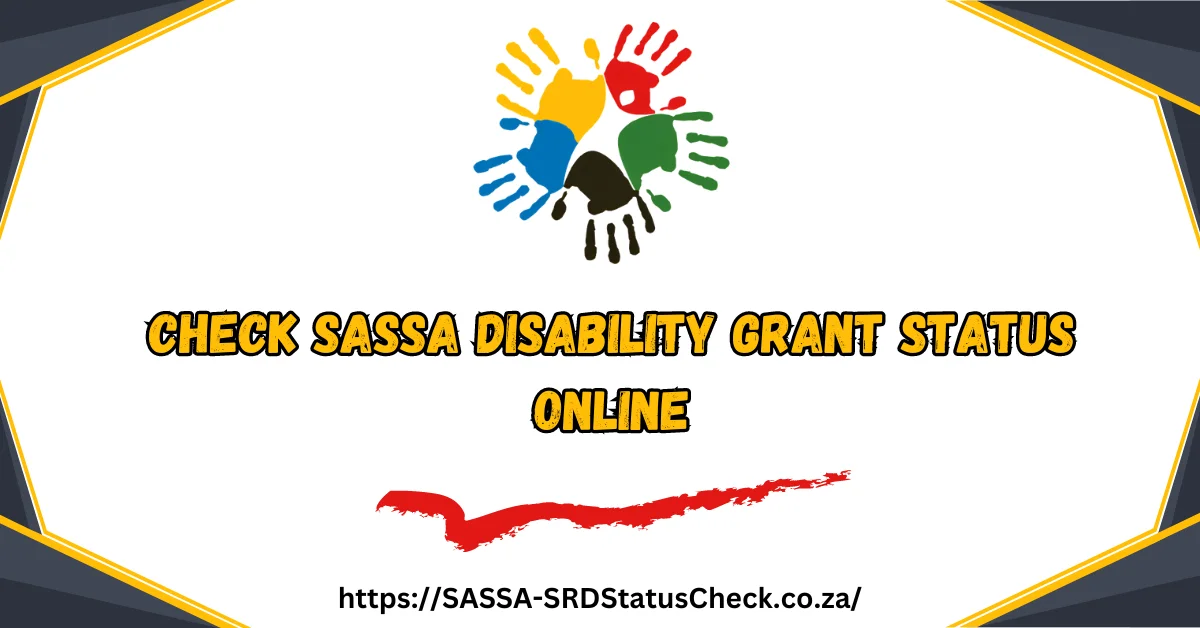As someone who’s helped many caregivers navigate the SASSA grant system, I understand how vital the Care Dependency Grant is for families caring for children with severe disabilities.
In this guide, I’ll walk you through the process of completing the affidavit for a Care Dependency Grant in 2024, ensuring you have the best chance of approval.
Download SASSA Care Dependency Grant Form
Open the Below Link to Download SASSA Care Dependency Grant Form
https://services.sassa.gov.za/portal/r/sassa/files/static/v58/Affivadit_CDG.pdf
How to Write an Affidavit for the SASSA Care Dependency Grant in 2024? (Short Summary)
To write an affidavit for the SASSA Care Dependency Grant in 2024:
- Fill in personal details
- Provide child’s information
- Declare relationship and living situation
- State marital status
- List all income sources
- Sign and have sworn by a Commissioner of Oaths
- Submit with supporting documents
What is the SASSA Care Dependency Grant?
The Care Dependency Grant is a monthly payment provided by the South African Social Security Agency (SASSA) to help caregivers of children with severe disabilities. This grant aims to offset the additional costs associated with caring for a child with special needs.
The Importance of the Affidavit
The affidavit is a crucial document in your grant application. It serves as a sworn statement, verifying the information you provide about yourself and the child in your care. Completing this form accurately is essential for a successful application.
How to Write an Affidavit for the SASSA Care Dependency Grant in 2024?
1. Personal Information
- Fill in your details:
- Surname
- Full names
- Age
- Physical address (including postal code)
- Identity number
Pro tip: Double-check your ID number for accuracy. Mistakes here can delay your application.
2. Child’s Information
- Provide the child’s details:
- Name and surname
- Date of birth
- Name of clinic/hospital where the child was born
- ID number of the child
Key point: Ensure the child’s birth date matches their birth certificate.
3. Relationship Declaration
- State your relationship to the child:
- Mark whether you’re the parent, foster parent, or primary caregiver
- Confirm that the child resides with you
- Verify that the child is not in a state-funded institution
4. Marital Status
- Indicate your marital status:
- Choose from options like married, unmarried, divorced, widowed, etc.
- If married, specify the type of marriage (e.g., in community of property, customary union)
Important: If divorced or widowed, you may need to provide additional documents.
5. Spouse/Partner Information
- If applicable, provide details about your spouse or partner:
- Full names and surname
- ID number
Note: Explain if you can’t provide certain documents (e.g., spouse’s ID, divorce decree, death certificate).
6. Income Declaration
- Mark all sources of income for:
- Yourself
- Your spouse (if applicable)
- The dependent child
Income types include:
- Salary or wages
- Business profits
- Trust or inheritance payments
- Property income
- Pensions or annuities
- Maintenance received
- Rental income
- Interest or dividends
Key point: Be honest about all income sources. SASSA may verify this information.
7. No Income Declaration
- If you have no income, explain how you currently survive
Tip: Be clear and specific about your means of support.
8. Final Declaration and Signing
- Read the declaration carefully
- Sign or place your thumbprint
Critical: Your signature confirms that all information is true and correct.
Getting the Affidavit Sworn
After completing the form:
- Visit a Commissioner of Oaths: This could be at a police station, post office, or bank.
- Present your ID: The Commissioner will need to verify your identity.
- Sign in their presence: Don’t sign the affidavit until instructed by the Commissioner.
- The Commissioner will complete their section: They’ll sign, stamp, and date the document.
Tips for a Strong Affidavit
- Be honest: Providing false information can lead to legal consequences.
- Be thorough: Include all relevant details about your situation and the child’s condition.
- Write clearly: If handwriting, use black ink and print neatly.
- Double-check: Review all information for accuracy before submitting.
- Attach supporting documents: Include medical reports or assessments of the child’s condition.
Common Mistakes to Avoid
- Incomplete information: Fill out every section that applies to you.
- Inconsistent details: Ensure all information matches other documents you’re submitting.
- Unsigned or unsworn: Make sure the affidavit is properly signed and sworn before submission.
- Outdated information: Use the most current form and provide up-to-date details.
Conclusion
Completing the affidavit for a SASSA Care Dependency Grant accurately is crucial for a successful application. By following this guide and paying attention to detail, you’ll be well-prepared to submit a strong application. Remember, this grant can provide significant support for caring for a child with severe disabilities, so it’s worth taking the time to get it right.
For the most up-to-date information or if you have specific questions, contact SASSA directly:
- Phone: 0800 60 10 11
- Email: [email protected]
- Website: www.sassa.gov.za
By understanding the process and preparing thoroughly, you can navigate the SASSA grant system effectively and access the support you and your child need.
Frequently Asked Questions
Q: Can someone help me fill out the affidavit?
A: Yes, but you must sign it yourself and be present when it’s sworn.
Q: How often do I need to submit a new affidavit?
A: Typically annually, but some long-term conditions may require less frequent updates.
Q: What if I make a mistake on the form?
A: Start over with a new form. Don’t use correction fluid or cross out information.
Q: Is there a fee for submitting the affidavit?
A: The form itself is free, but you may pay a small fee to have it sworn by a Commissioner of Oaths.

I’m Anele Zulu, a South African social worker dedicated to serving my country’s most vulnerable. With my degree and field expertise, I empower underprivileged communities through compassionate support and tireless advocacy on this website. My goal is simplifying access to services so families can uplift themselves
Contents
- 1 Download SASSA Care Dependency Grant Form
- 2 What is the SASSA Care Dependency Grant?
- 3 The Importance of the Affidavit
- 4 How to Write an Affidavit for the SASSA Care Dependency Grant in 2024?
- 5 Getting the Affidavit Sworn
- 6 Tips for a Strong Affidavit
- 7 Common Mistakes to Avoid
- 8 Conclusion
- 9 Frequently Asked Questions

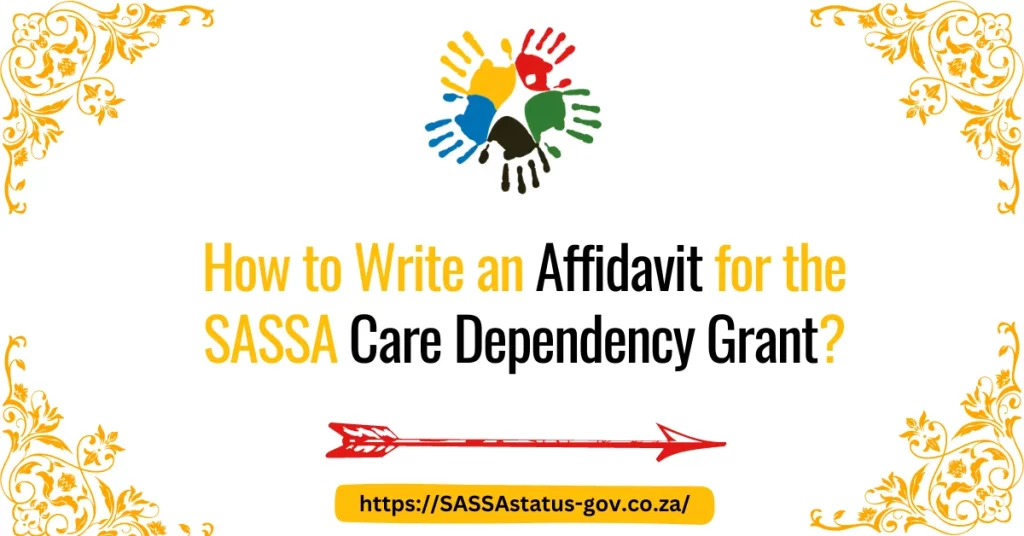
![SASSA Grants Types in South Africa [2024] - [Ultimate Guide] The Complete Guide to SASSA Grants Types in South Africa](https://sassastatus-gov.co.za/wp-content/uploads/2024/02/The-Complete-Guide-to-SASSA-Grants-Types-in-South-Africa.webp)
